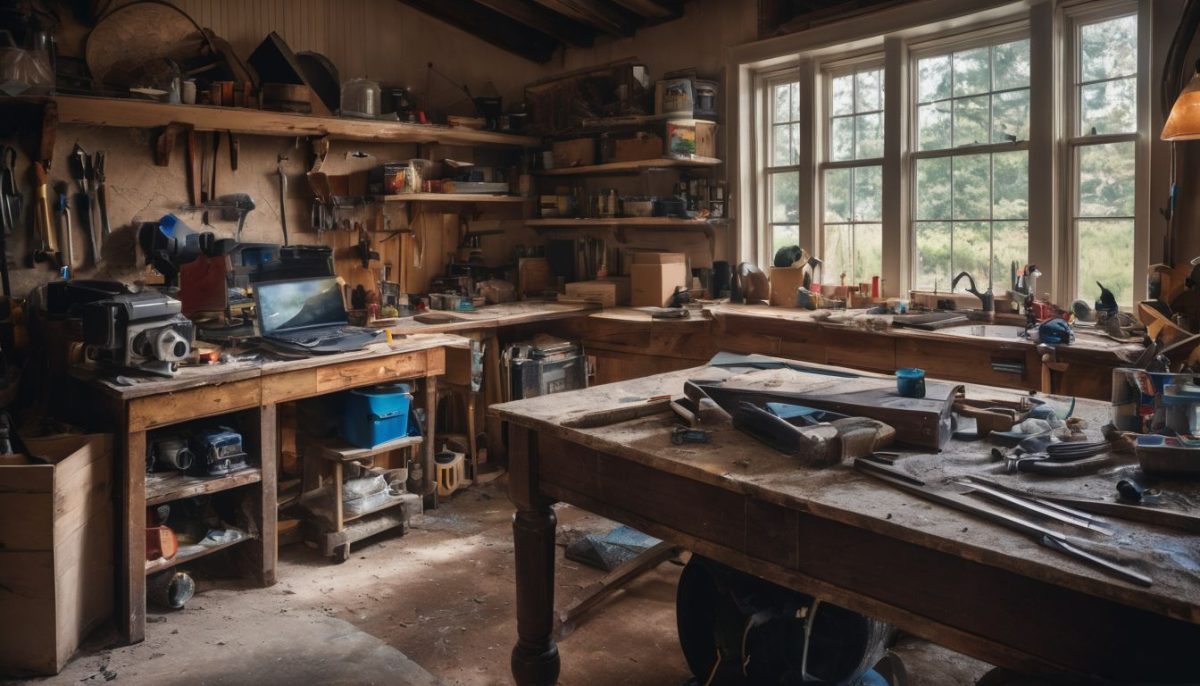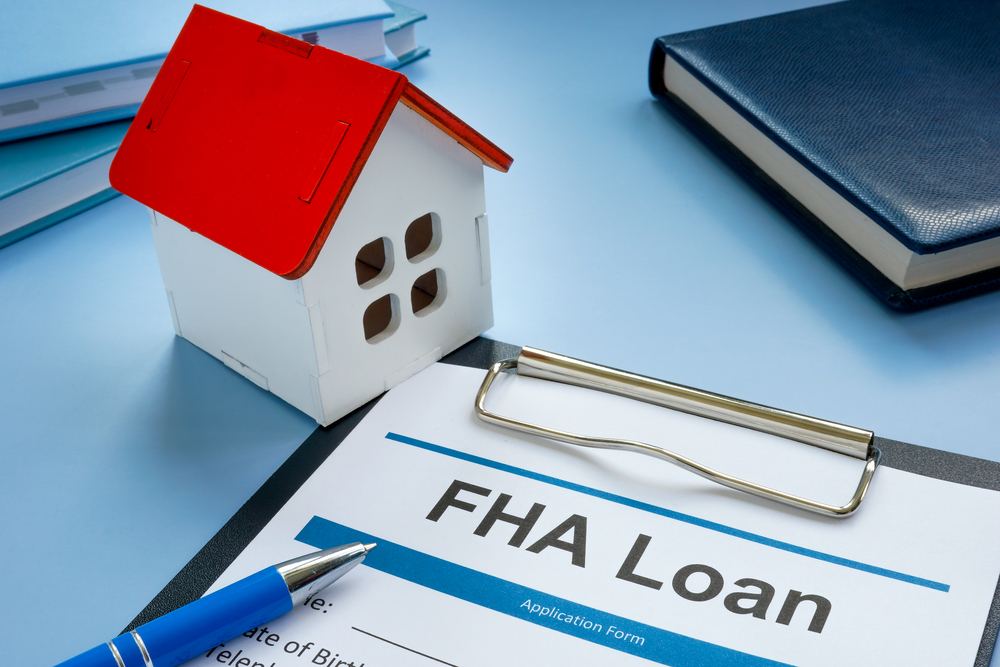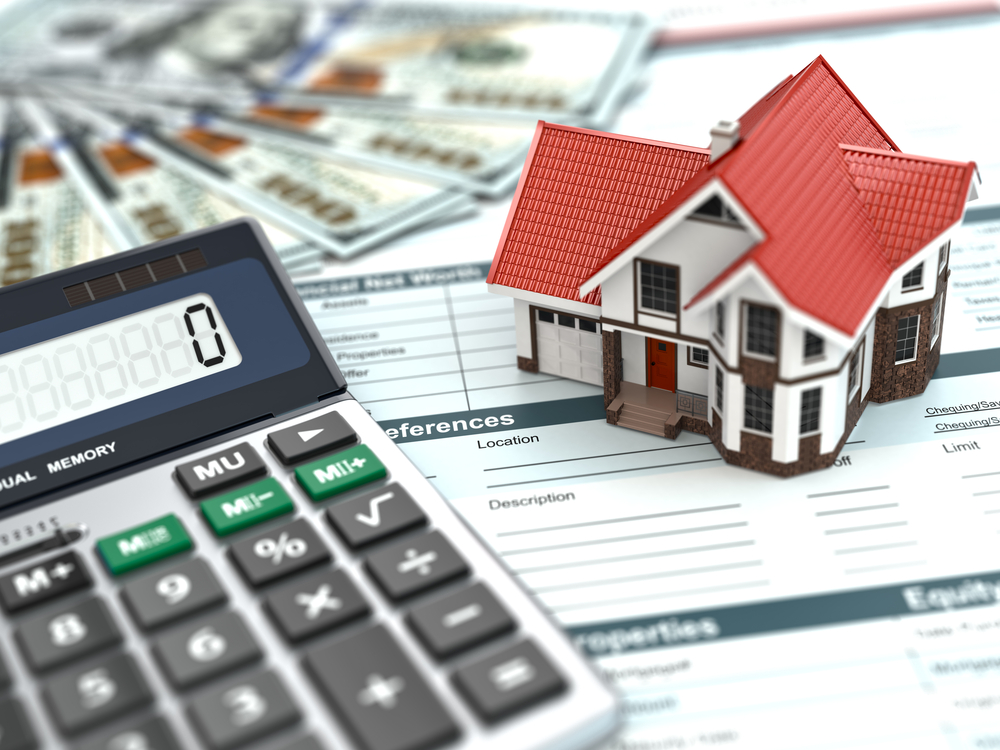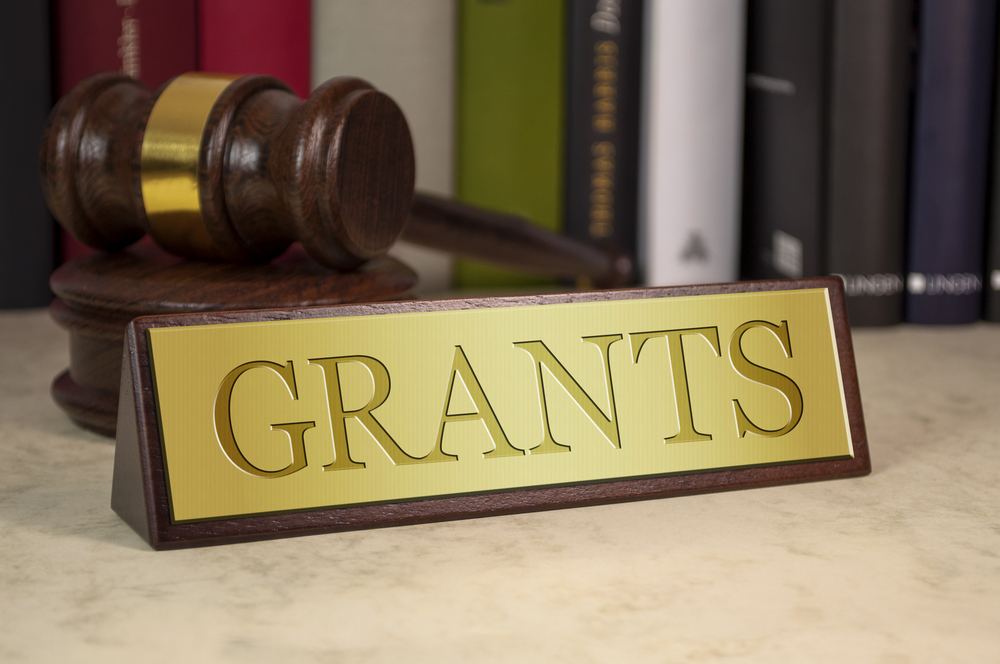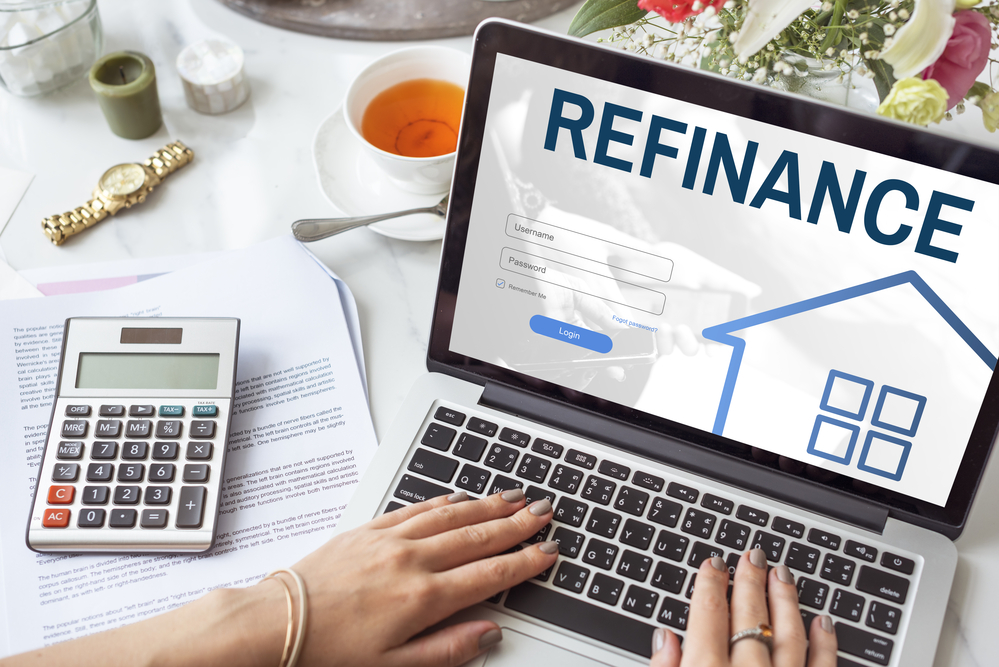9 Qualifications
If your home needs fixing, money can be a big worry.
Good news: Government grants exist to help with these expenses.
This blog will guide you through some qualifications you need for a government home improvement grant, so you’ll know if you’re eligible.
Keep reading to find out whether you might qualify for a government home improvement grant.
Key Takeaways
- Government home improvement grants offer free financial help for repairs and upgrades, including loans through programs like Section 504 Home Repair Program.
- Eligibility often depends on income level, age, property type, special circumstances such as being a veteran or having a disability; low-income homeowners and senior citizens are common qualifiers.
- The grant can be used for various purposes such as fixing essential house systems, improving energy efficiency, or making accessibility modifications for people with disabilities.
- Native American homeowners have specific grant programs available to assist with home improvements within their communities.
- Grants vary in amount but do not generally require repayment, providing significant financial relief without increasing debt.
What is a government home improvement grant?
A government home improvement grant is essentially free money given by the government to help homeowners make necessary repairs and upgrades to their homes. Unlike loans, these grants do not require repayment, making them a financially attractive option for those who qualify.
They target specific needs such as safety improvements, energy efficiency, or accessibility modifications for individuals with disabilities. Homeowners might use this support to fix roofs, update heating systems, or even install ramps.
It’s a way for the government to invest in communities by ensuring safe and healthy living environments.
You could find yourself eligible for one of these grants if you meet certain criteria set by various federal, state, or local programs designed to assist different groups within the population.
Each program has its own rules and qualifications which often include income level, age, type of property owned and special circumstances like being a veteran or living in a rural area.
Taking advantage of these opportunities can significantly reduce the financial burden of maintaining your home and improve your quality of life.
How do you qualify for a government home improvement grant?
There are several qualifications for government home improvement grants, including low-income homeowners, single-family housing repair loans, the Home Investments Partnership Program (HOME), senior citizens, and veterans.
If you fall into any of these categories, you may be eligible for assistance with your home improvement projects.
1. Low-income homeowners
If you’re a low-income homeowner, government home improvement grants could be your ticket to fixing up your house without the financial strain. These grants are designed to help those who might not otherwise afford the necessary repairs and upgrades their homes require.
You might qualify based on your income level, which is often compared against the median income in your area.
Living in a safe and comfortable environment shouldn’t be out of reach just because money is tight. That’s why these grants can cover a range of projects, from essential structural repairs to energy-efficient updates.
If you fall under this category, it is worth exploring how government assistance can make maintaining or improving your home achievable without sinking into debt.
2. Single-family housing repair loans
Are you in need of financial help to fix up your home? Single-family housing repair loans are here for that very purpose. They can cover a range of repairs and improvements such as fixing the roof, updating electrical wiring, or making your home more energy-efficient.
Typically offered by the government, these loans aim to make homes safe and livable for families.
To tap into this resource, you should own and occupy your house and meet certain income criteria which demonstrate a genuine need for assistance. The beauty of these loans is their low-interest rates and manageable repayment options.
So don’t let the cost of necessary repairs keep you from maintaining your family’s haven. Secure a loan that suits your situation and start turning your house back into a safe, comfortable home today.
3. Home Investments Partnership Program (HOME)
The Home Investments Partnership Program (HOME) is a government initiative that provides funding to state and local governments for the purpose of creating affordable housing for low-income households.
Through HOME, qualified individuals can receive assistance with home repairs and improvements aimed at ensuring safe and habitable living conditions. This program serves as a valuable resource for prospective homeowners who may not have the financial means to address necessary renovations on their own.
Individuals eligible for the HOME program include low-income households, veterans, senior citizens, people with disabilities, Native Americans, and others in need of affordable housing solutions.
4. Senior citizens
Senior citizens can qualify for government home improvement grants to make necessary repairs and modifications to their homes. This assistance can help them afford critical upgrades, such as installing ramps or handrails, as well as addressing health and safety concerns in their living environment.
These grants aim to provide senior citizens with the support they need to continue living independently and safely in their homes. By taking advantage of these opportunities, older adults can create a more accessible and comfortable living space that meets their evolving needs.
Whether it’s structural improvements or accessibility modifications, government home improvement grants offer vital resources for senior citizens looking to enhance the functionality and safety of their homes.
5. Area Agency on Aging
The Area Agency on Aging provides valuable resources and support for elderly individuals seeking assistance with home improvements. They offer programs specifically tailored to address the unique needs of senior citizens, including grants and loans for essential repairs and modifications.
These initiatives aim to improve safety, accessibility, and overall living conditions for older adults, ensuring that they can age in place comfortably.
If you are a senior citizen looking to make necessary upgrades to your home but have limited financial means, exploring the options available through the Area Agency on Aging could be beneficial for you.
Their specialized services cater to the specific requirements of older homeowners, helping them maintain a safe and functional living environment as they age gracefully.
6. Section 504 Home Repair Program
The Section 504 Home Repair Program offers loans to low-income homeowners aged 62 years or older. These loans can be used to remove health and safety hazards as well as to make the home more accessible for household members with disabilities.
The program aims to provide a safe living environment for those who may otherwise be unable to afford necessary repairs.
You can apply for the Section 504 Home Repair Program through your local rural development office. Once approved, funds from this program can be used for a variety of repairs, such as fixing leaky roofs, installing or repairing plumbing systems, and making homes more energy-efficient.
7. Veterans
Veterans can qualify for government home improvement grants to make necessary repairs and upgrades to their homes. This assistance is available through programs designed specifically to support veterans in maintaining safe and comfortable living environments.
By meeting the eligibility requirements, veterans can access funds to address essential home improvements, ensuring that their housing remains suitable for their needs.
If you are a veteran and need financial assistance to improve your home, explore the various government programs tailored to support veterans with essential housing repairs and upgrades.
8. People with disabilities
For people with disabilities, government home improvement grants can provide crucial support for making necessary modifications to their homes. These grants can help in installing ramps, widening doorways, or creating accessible bathrooms and kitchens, improving mobility and independence within the home.
It’s important to note that these grants are designed to address specific accessibility needs, ensuring that individuals with disabilities can live comfortably and safely in their own homes.
To qualify for a government home improvement grant as a person with disabilities, there are specific criteria relating to your disability status and the modifications required due to your condition.
9. Native Americans
Native Americans may be eligible for government home improvement grants to help with repairs, renovations, and energy efficiency upgrades. These grants are available through various programs specifically tailored to assist Native American homeowners in improving their living conditions.
With these grants, you can address critical repair needs, make your home more livable and safe, and enhance its overall value. Whether you reside on tribal land or within a community that is predominantly Native American, there are resources available to support your efforts toward maintaining a comfortable and functional home.
To access these opportunities as a Native American homeowner, it’s important to research the specific grant programs aimed at assisting Indigenous communities. By connecting with relevant tribal authorities or housing agencies, you can gain valuable insights into the eligibility criteria and application process for obtaining government assistance for home improvements.
What can you use a home improvement grant for?
You can use a home improvement grant to repair or upgrade essential systems in your home. This includes fixing roofing, plumbing, electrical wiring, and heating systems. You can also use the grant to make your home more energy-efficient by installing insulation or replacing old windows and doors.
Additionally, the funds can be used for modifications that improve accessibility for individuals with disabilities, such as adding ramps or chair lifts.
Moreover, you can allocate the money towards addressing health and safety hazards within your property like lead-based paint removal or asbestos abatement. Furthermore, making necessary repairs to ensure structural stability and hurricane readiness are also eligible uses of a home improvement grant.
Government home improvement grants: FAQs
Here are some of the most common questions we’re hearing about government home improvement grants.
Is it easy to qualify for a government home improvement grant?
Qualifying for a government home improvement grant is based on various criteria, such as being a low-income homeowner, senior citizen, person with disabilities, veteran, or Native American.
Additionally, specific programs like the Single-family Housing Repair Loan and Home Investments Partnership Program also offer opportunities for qualifying. The application process involves demonstrating eligibility based on these factors to access the financial assistance available.
When considering applying for a government home improvement grant, it’s essential to understand the qualifications that apply to your situation and explore all available options before making a decision.
Whether you’re seeking resources as a low-income homeowner or require support due to age or disability, investigating the specific requirements and understanding your eligibility can be crucial in accessing this beneficial program.
How much money can I get through a government home improvement grant?
Government home improvement grants typically range from a few thousand dollars to around $25,000. The amount you receive depends on your specific needs, income level, and the grant program’s funding availability in your area.
Grants are not meant to cover the entire cost of your project, but they can significantly offset the expenses associated with necessary repairs or improvements.
When considering these grants, it’s essential to research and understand the various programs available in your area and how much financial assistance each one offers for the type of improvements you require.
Whether it’s repairing a roof or making accessibility modifications for someone with disabilities, government home improvement grants can provide valuable support as you enhance your living space.
Do I have to repay a government home improvement grant?
Generally, government home improvement grants do not require repayment as they are designed to assist low-income homeowners, veterans, senior citizens, people with disabilities, and other eligible individuals in making essential repairs or improvements to their homes.
These grants serve as financial assistance to support the safety and livability of your residence without creating an additional financial burden on you. Keep in mind that specific programs may have different guidelines regarding repayment requirements, so it’s important to thoroughly understand the terms of the particular grant you are applying for.
Is a government home improvement grant right for you?
Should you apply for a government home improvement grant? It depends on your unique personal circumstances.
Rather than going through the process on your own, you’re much better off joining forces with a skilled real estate professional who can walk you through the process and explain all the options available to you.
When you’re ready to learn more about government home improvement grants, schedule a free consultation with an expert.
More frequently asked questions: Government home improvement grants
1. What is a government home improvement grant?
A government home improvement grant is financial aid provided by the government to help homeowners pay for upgrades and repairs on their homes.
2. Who can get this type of grant?
Homeowners who meet certain qualifications, such as income limits, location requirements, or specific needs like making a home more energy-efficient or accessible for people with disabilities, might be eligible for a government home improvement grant.
3. Are there grants available for anyone who wants to fix up their house?
Not everyone will qualify; eligibility for these grants typically depends on factors like your income level, the type of property you own, and what improvements are necessary.
4. How do I find out if I’m eligible for a government home improvement grant?
To see if you’re qualified for a government home improvement grant, check with local or federal housing agencies that offer these programs and review their criteria which may include specific qualifications related to your situation and the work needed on your house.Rather than trying to figure it out on your own, consult with an expert today.
Disclaimer:
The content provided on this website is offered for educational purposes only. While we endeavor to provide accurate and up-to-date information, we make no representations or warranties of any kind, express or implied, about the completeness, accuracy, reliability, suitability, or availability of the content for any purpose. Visitors are advised to consult with qualified experts before making any financial decisions or taking any actions based on the information provided on this website.

